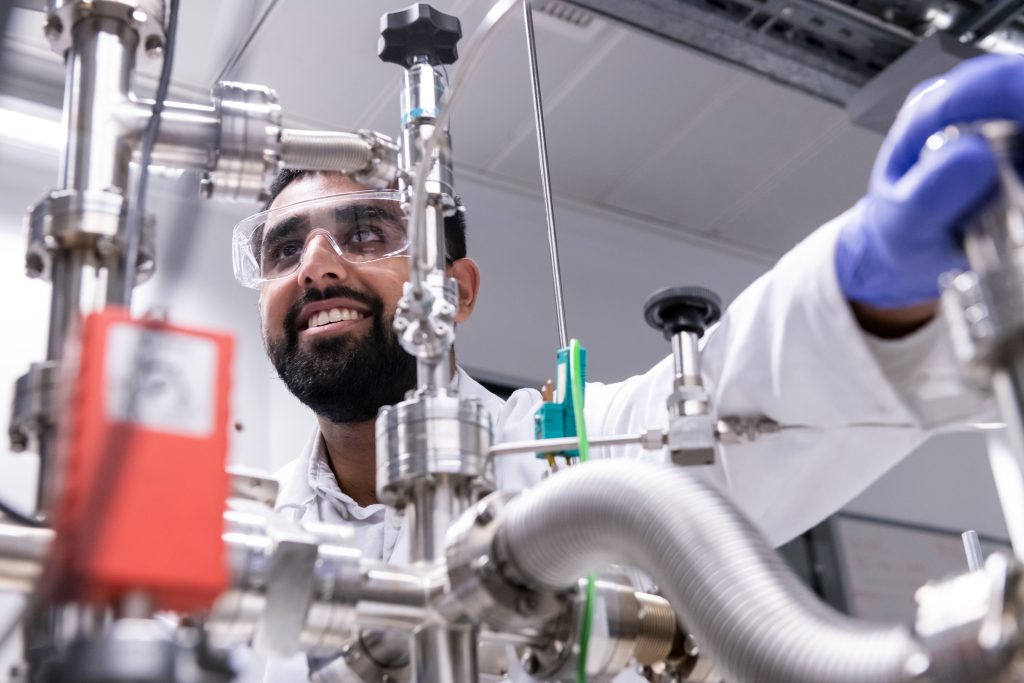 In this post, Nomaan Nabi, Research Postgraduate in the Department of Materials, explains more about Ramadan and how he balances fasting with his research during the holy month.
In this post, Nomaan Nabi, Research Postgraduate in the Department of Materials, explains more about Ramadan and how he balances fasting with his research during the holy month.
My name is Nomaan Nabi and I am a Muslim student in the final year of my PhD in the Materials department. I work in the field of energy storage in the Electroceramics group supervised by Professor Stephen Skinner and Dr Ainara Aguadero.
As some of you may know that last week the Holy month of Ramadan began, upon the sighting of the crescent moon. Below I’ve outlined a few common questions about Ramadan and life as a Muslim student during this month.
Can you tell us more about Ramadan?
Ramadan is an extremely special occasion for Muslims as it is a time for God-consciousness, forgiveness, charity, and self-discipline. The month is not only about dry fasting from sunrise to sunset but also about, keeping up with daily prayers, avoiding speaking ill of others and using foul language. At the end of the month, we celebrate Eid al Fitr.
How long do you fast for?
We begin our fast before the first prayer of the day known as Fajr Salah which is before sunrise. We end the fast at sunset. The time during the day for fasting depends on your geographical location with people furthest away from the equator having to fast the longest. This is typically done for thirty consecutive days.
How do you break your fast?
Iftar is the time when we end the fast. Traditionally we break our fast with a date followed by the prayer at Sunset known as Maghrib Salah and then you can have the rest of your meal. As one of the purposes of Ramadan is to put yourself in the shoes of the less fortunate, we try to not have a vast amount of food when we can start eating. I think I can speak for all Muslims one of the greatest feelings at the end of each fast is the first sip of water and a date.

When did you start fasting during Ramadan?
I was fourteen years old when I first started fasting. Growing up in Scotland, fasting was something I dreaded as it was during the long summer days. However, as I get older it is always a time I look forward to, as I begin to further understand the benefits whether spiritual or health.
Can you tell us about student life during Ramadan?
The life of a Muslim student during Ramadan can vary a lot from periods of productivity, to becoming quite sluggish as you become dehydrated throughout the day. However, the majority of Muslims during Ramadan go about their day as normal.
Now is a good time as many students are on holidays and hopefully get to spend time with their family and friends.
What will you do this year for Ramadan?
Personally, I tend to stay active in the laboratory, and by the end of the month, I realise how much work is accomplished. As I will be away from my family this Ramadan I will be breaking my fast and praying with fellow Imperial Muslims in the prayer room at College.
Overall, Ramadan is a time for self-improvement and achieving spiritual goals that will hopefully last a lifetime.
If you have any questions regarding Ramadan, you can always approach a Muslim colleague as I am sure they will be more than happy to answer your questions or point you to a more knowledgeable source.